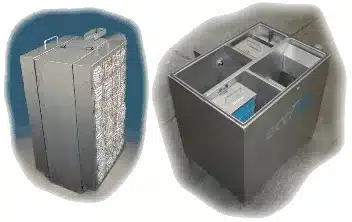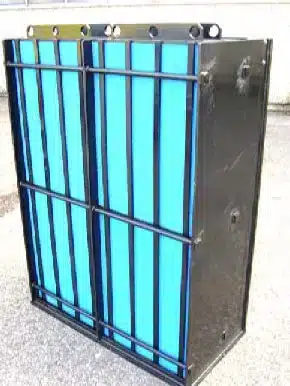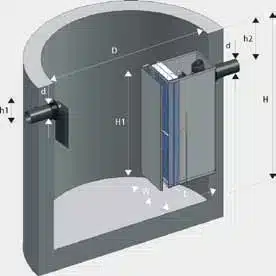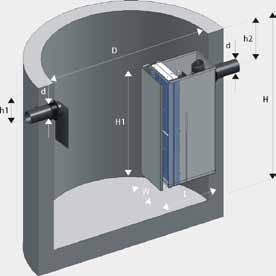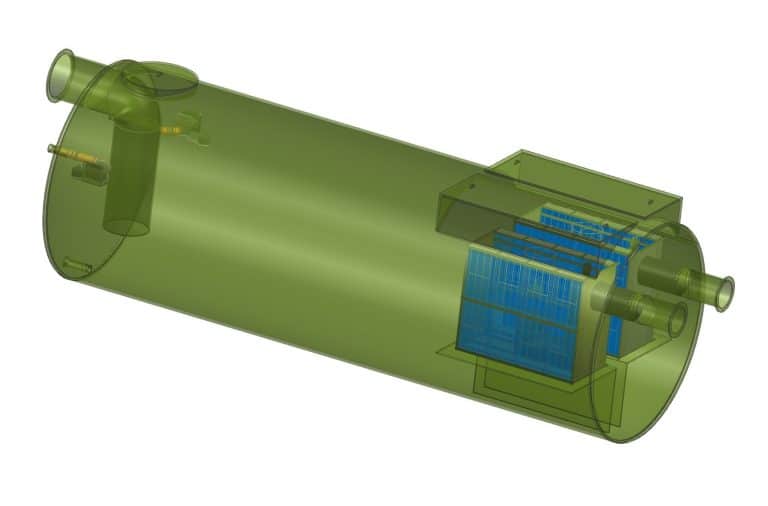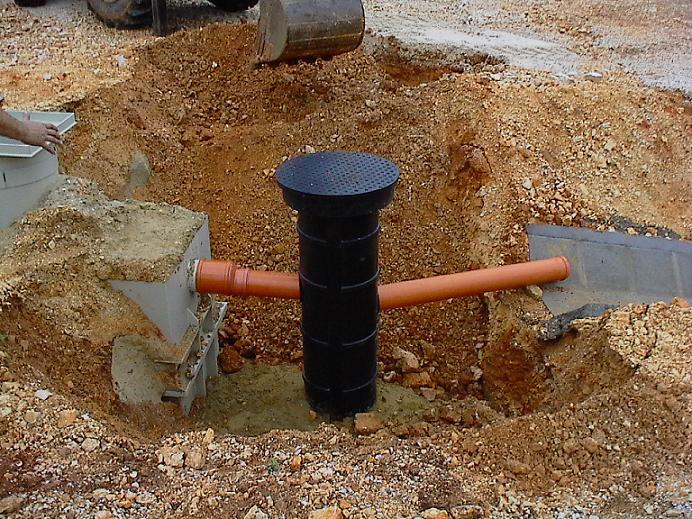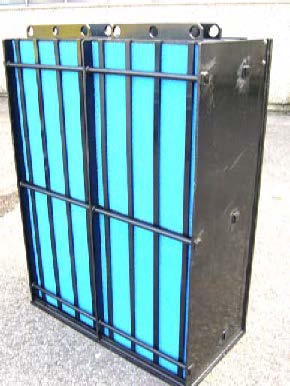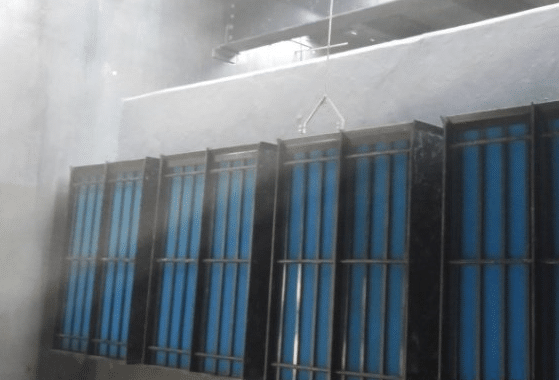Do you know about the hidden heroes in Washington D.C. that keep the waterways clean? District of Columbia Below Ground Oil Water Separators are key to the city’s effort. They protect the environment and follow strict rules. These devices in D.C. are vital for managing stormwater, keeping oil and grease out of local waters.
The District of Columbia is serious about keeping its water safe. It uses below ground oil water separators as a main defense against pollution. These devices help by stopping oil and grease from harming the water in automotive shops, parking lots, and industrial areas.
Key Takeaways
- Freytech Inc. Below ground oil water separators are crucial for D.C.’s environmental protection
- These devices are integral to Washington D.C.’s stormwater management system
- Underground oil/water separators prevent oil and grease contamination in local waterways
- D.C. enforces strict regulations for the installation and maintenance of these separators
- The GreenWrench program offers free guidance for automotive businesses in D.C.
Introduction to Oil Water Separators in D.C.
Oil water separators are key in Washington D.C.’s urban life. They manage stormwater and stop pollution, following D.C. environmental laws. Let’s look at their role, why they’re important, and the rules they must follow.
Definition and Purpose
Oil water separators are systems made to take oil and other petroleum out of water. In D.C., they’re vital for keeping waterways clean and following pollution prevention rules. They work by letting oil float on top while water goes down, effectively separating the two.
Importance in Urban Environments
In a city like D.C., oil water separators are crucial. They stop pollutants from getting into storm drains and water. This is very important in places with lots of cars or factories, where oil spills happen often.
Regulatory Framework in the District
D.C. has strict rules for oil water separators. The Underground Storage Tank Regulations and Fire Prevention Code set the standards for putting them in and keeping them up. These laws cover all underground tanks and systems in D.C., making sure pollutants are handled right and protecting the city’s water.
Types of Below Ground Oil Water Separators
Washington D.C. has various underground oil separators for different needs. These systems are key in stopping oil from getting into water sources. Let’s look at the main types used in the city.
Gravity Separators
Gravity separators are the simplest kind of oil interceptor in D.C. They use the difference in density between oil and water. Oil goes up to the top while water goes down. This method works well for basic separation but may not work with emulsified oils.
Coalescing Plate Separators
Coalescing plate separators improve the separation process. They have angled plates that catch small oil droplets. These droplets gather and form bigger globules that are easier to remove. This type is better than gravity separators, especially for small oil particles.
Enhanced Coalescing Separators
Enhanced coalescing separators are the latest in oil separator technology in Washington D.C. They mix gravity separation with advanced coalescing media. This means they remove oil better, even from hard-to-separate emulsified oils. These systems are perfect for places with high environmental standards.
When picking an oil water separator, think about the site, flow rates, and local laws. All types need to be made to resist corrosion and kept up to work well and protect the environment.
District of Columbia Below Ground Oil Water Separators
The nation’s capital has strict rules for below-ground oil water separator D.C. code compliance. These systems are key in treating wastewater and protecting the environment. Owners must follow specific guidelines when installing or upgrading these tanks in the District.
Oil and water separation systems in District of Columbia must meet Clean Water Act standards. This means getting the right permits for building underground storage tanks (USTs). The permit process makes sure all installations follow local environmental laws and best practices.
Release detection methods are a key part of the D.C. code for below-ground oil water separators. These systems prevent soil and groundwater contamination. Regular checks and upkeep are needed to keep separators working well.
Businesses and property owners in D.C. should team up with certified pros for oil water separators. This ensures they follow all rules and protect the environment. Proper setup and care of these systems help keep the Potomac River watershed healthy.
Installation and Maintenance Requirements
Installing and keeping below ground oil water separators in the District of Columbia needs careful planning and following local rules. Doing this right helps with effective stormwater treatment and meeting environmental standards.
Permit Process
Before starting oil interceptor projects in D.C., owners must get the right permits. They need to send in detailed plans to the Department of Energy and Environment. These plans should cover the separator’s details, where it will be placed, and how it fits with current stormwater systems.
Inspection Guidelines
Checking oil water separators often is key. The District says to do visual checks every month and a full check-up once a year. Technicians look at the separator’s condition, how much oil it has, and how well it treats stormwater.
Cleaning and Servicing
Keeping oil interceptors in good shape is vital for their work. How often they need cleaning depends on how much they’re used and how much oil they catch. Usually, it’s cleaned every six to twelve months. Experts use special gear to take out oil, dirt, and other stuff, keeping the separator working well for stormwater treatment in D.C.
Environmental Impact and Compliance
Below ground oil water separators are crucial for managing stormwater in Washington D.C. They protect local waterways and follow D.C. environmental laws. These systems are key for businesses and industries focused on clean water and preventing pollution.
Stormwater Management Benefits
Oil water separators are important for D.C.’s stormwater management. They take out oil and grease from runoff before it gets into the sewer. This stops pollution in rivers and streams.
By treating water early, these systems ease the load on treatment plants. They also protect aquatic life.
Meeting Environmental Regulations
D.C. has rules for businesses to control pollutants in their wastewater. Oil water separators help by removing harmful substances before they’re released. The GreenWrench program offers advice on following these rules and preventing pollution.
Pollution Prevention Strategies
Preventing pollution is more than just using separators. It involves good waste management, controlling air quality, and protecting water. The GreenWrench program gives tools for making plans specific to each site.
These strategies help businesses lessen their environmental impact and avoid fines.
Freytech Inc. Solutions for D.C.
Freytech Inc. offers top-notch Below Ground Oil Water Separators for the District of Columbia. These systems follow D.C.’s strict environmental rules and separate oil effectively.
Enhanced Coalescing Technology
The company’s advanced coalescing tech leads in District of Columbia Below Ground Oil Water Separators. This tech makes oil droplets merge better, greatly improving separation.
5 PPM Separation Efficiency
Freytech’s separators hit a 5 PPM efficiency mark. This is way above North America’s 10 PPM limit for hydrocarbon discharge. For emulsified oil, they can get down to 0.1 PPM, making the water very clean.
Customized Separator Packages
Freytech designs Below Ground Oil Water Separators for D.C.’s unique needs. They can separate motor oil, diesel, gasoline, and jet fuel well. This customization means they work great in many D.C. applications.
Choosing Freytech’s solutions, D.C. businesses get dependable oil water separation. These systems go beyond local environmental standards, helping keep the nation’s capital’s waterways clean.
These separators are crucial in storm water systems. They process runoff to meet the US EPA’s Clean Water Act standards. With effective oily water treatment, facilities protect the environment and dodge big fines.
Conclusion
Below ground oil water separators are key in preventing pollution in the District of Columbia. They protect the environment and help businesses follow local laws. It’s important to install and maintain them well to keep stormwater clean.
The District has high environmental standards that need advanced oil/water separation solutions. Freytech Inc. offers top technology for this. Their systems help D.C. businesses meet and beat environmental laws, keeping water clean.
Choosing high-quality underground oil/water separators in D.C. helps the environment and saves businesses from fines. Freytech Inc. is an expert in custom solutions for better environmental performance. For advice on the best system, call Freytech Inc. at +1 (305) 372-1104.

